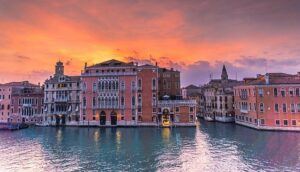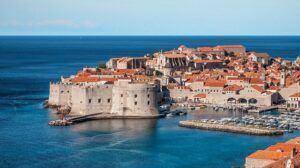Introduction
When considering a reverse mortgage, it’s important to understand which property types qualify for this type of loan. A reverse mortgage allows homeowners aged 62 or older to convert a portion of their home equity into cash, without the need to sell or move out of their property. However, not all property types are eligible for a reverse mortgage. In this article, we will explore the different property types and identify which one does not qualify for a reverse mortgage.
Single-Family Homes
Definition: Single-family homes, also known as detached homes, are standalone residential properties designed for one family.
Single-family homes are eligible for a reverse mortgage. This property type is the most common and straightforward when it comes to qualifying for a reverse mortgage. As long as the homeowner is 62 years of age or older and meets the other requirements, such as sufficient home equity, they can apply for a reverse mortgage on their single-family home.
Multi-Unit Properties
Definition: Multi-unit properties are residential buildings that contain multiple separate housing units, such as duplexes, triplexes, or apartment complexes.
Multi-unit properties can also qualify for a reverse mortgage, but with some limitations. To be eligible, the homeowner must occupy one of the units as their primary residence. The number of units that can be financed through a reverse mortgage depends on the lender’s guidelines and the Federal Housing Administration (FHA) loan limits.
Condominiums
Definition: Condominiums are individual units within a larger complex or building, where each unit is owned by an individual homeowner.
Condominiums can qualify for a reverse mortgage, but certain criteria must be met. The condominium complex must be approved by the FHA, which ensures that it meets specific standards for financial stability, maintenance, and other factors. Homeowners looking to obtain a reverse mortgage on their condominium should check if their complex is FHA-approved.
Manufactured Homes
Definition: Manufactured homes, also known as mobile homes, are prefabricated structures built in a factory and then transported to a specific location.
Manufactured homes can qualify for a reverse mortgage if they meet certain requirements. The home must be built after June 15, 1976, and must be permanently affixed to a foundation on land owned by the homeowner. Additionally, the home must meet the FHA’s guidelines for manufactured homes, including structural integrity and other standards.
Cooperative Housing
Definition: Cooperative housing, or co-ops, are multi-unit buildings where residents own shares in a corporation that owns the entire property.
Unfortunately, cooperative housing does not qualify for a reverse mortgage. This is because the homeowner does not have direct ownership of the property but rather owns shares in a cooperative corporation. Since reverse mortgages require direct ownership of the property, co-op units are not eligible.
Conclusion
In conclusion, most property types, including single-family homes, multi-unit properties, condominiums, and manufactured homes, can qualify for a reverse mortgage. However, cooperative housing, or co-ops, are not eligible for this type of loan due to the ownership structure. It is important for homeowners to understand the eligibility requirements for their specific property type before considering a reverse mortgage.
References
1. hud.gov
2. reversemortgage.org
3. fha.com





